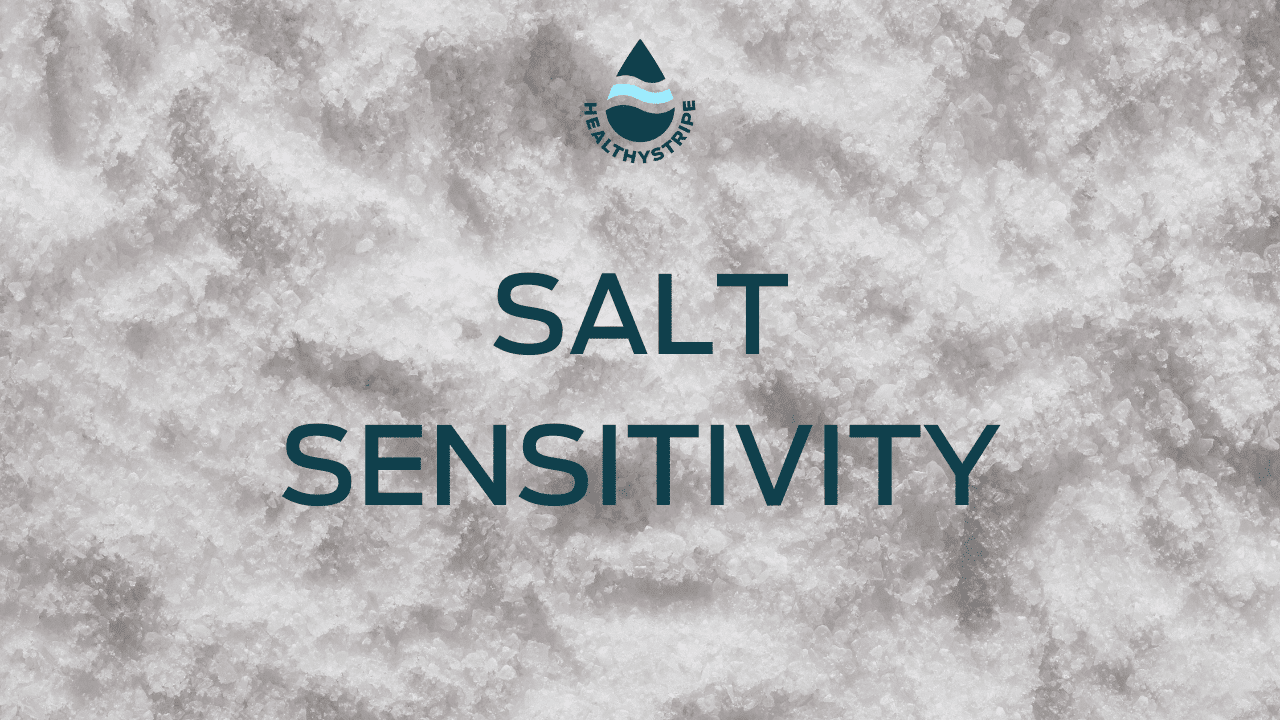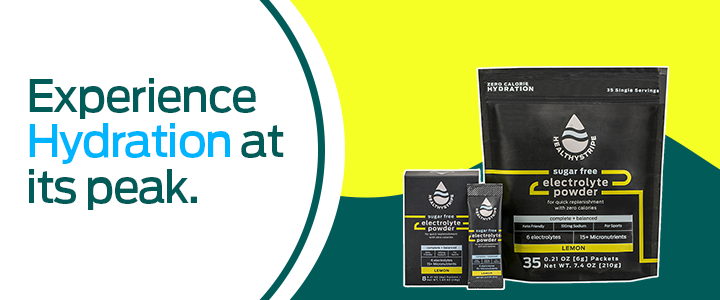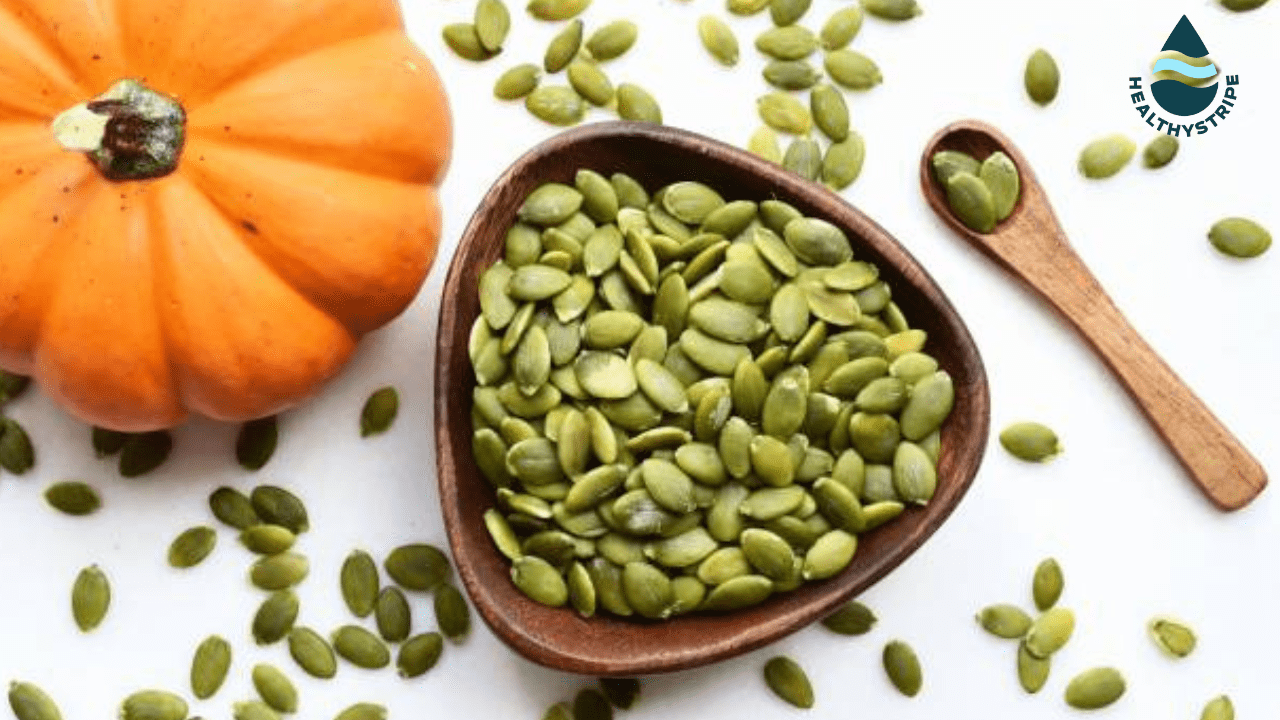Salt Sensitivity: A Comprehensive Guide to Blood Pressure

High blood pressure, or hypertension, is the most common health problem with serious implications for cardiovascular health. According to the Centers for disease control (CDC), nearly half of the population (47% of the total population or 16 million people) have hypertension. While discussing the culprits behind this disease, salt sensitivity is the most prevalent cause. Understanding the impact of salt sensitivity and its effect on blood pressure is crucial for effective management and prevention of hypertension.
Salt is an essential mineral, but it works as a double-edged sword when it comes to hypertension. It plays a critical role in maintaining many body functions like fluid balance, water balance, blood pressure regulation, and nerve transmission. In comparison, a diet high in salt causes various health problems, including the most notorious one, high blood pressure or hypertension.
In this comprehensive blog, we will dig deep into the concept of salt sensitivity, its symptoms, causes, risk factors, measurement methods, the relationship between salt intake and blood pressure, salt sensitivity in women, the connection between abnormal kidney function and salt sensitivity, and strategies for managing salt sensitivity. Let’s get straight into it!
What is Salt Sensitivity?
Salt sensitivity refers to a condition when a person is susceptible to changes in blood pressure due to variations in dietary salt intake. According to research statistics, 51% of hypertensive people have salt sensitivity, while 22% of normotensive (people with normal blood pressure) have salt sensitivity.
Some people consume high amounts of salt, but they don’t have a significant rise in blood pressure. In comparison, others consume very low amounts of salt and experience a significant increase in blood pressure in response; such people are salt sensitive. Salt sensitivity may result in the development or exacerbation of blood pressure leading to chronic hypertension and, eventually, stroke.
Symptoms, Causes, and Risk Factors of Salt Sensitivity
Salt sensitivity does not typically show any noticeable symptoms on its own, and it is difficult to pinpoint it. It is a predisposing factor to hypertension. You may observe the following symptoms of salt sensitivity:
- Rise in blood pressure after consumption of salt
- Headaches
- Dizziness
- Fatigue
- Fluid retention in the body or edema
- Shortness of breath
- Increased urination
- Increased thirst
- Kidney problems
If you have a positive family history of blood pressure and salt sensitivity, you have a higher risk of developing chronic hypertension. It is critical to monitor blood pressure regularly.
Causes of Salt Sensitivity
The causes of salt sensitivity are multifactorial, involving a complex interplay between genetic, environmental, and physiological factors.
Genetic predisposition plays a significant role. General variations in the renin-angiotensin-aldosterone system (RAAS) are the leading cause that influences how the body handles sodium. Other contributing factors include excess body weight, diabetes, chronic kidney problems, metabolic disorders, insulin resistance, high alcohol intake, and a sedentary lifestyle.
In normal people, the renin-angiotensin-aldosterone system (RAAS) regulates sodium excretion from the body and maintains equilibrium. In salt-sensitive people, RAAS doesn’t work efficiently due to genetic variations, aging, and other comorbidities.
Researchers also suggest that salt sensitivity can be due to dysfunction of renal tubules, disrupted sodium-nervous system interaction, problems in the immune system, impaired function of atrial natriuretic peptide (ANF), vascular endothelial dysfunction, and high insulin levels in the blood (hyperinsulinemia).
Risk Factors for Salt Sensitivity
Various factors increase the likelihood of salt sensitivity. These factors include the following:
- Older age
- African or South Asian ethnicity
- Family history of hypertension
- Obesity and high body mass index
- Diabetes
- Kidney disease
Moreover, some medical issues like metabolic syndrome and chronic kidney disease may lead to the development of salt sensitivity.
The Concept of Salt Sensitivity of Blood Pressure
Salt sensitivity occurs when an individual observes a significant spike in blood pressure significantly in response to salt consumption. Blood pressure increases due to the body’s inability to effectively regulate sodium levels in the renal tubules (kidneys), leading to fluid retention, increased blood volume, and elevated blood pressure.
When salt is consumed, the body retains water to balance the sodium concentration in the blood. This increased volume of water in the blood vessels elevates blood pressure on the arterial walls, resulting in high blood pressure. Eventually, sustained high blood pressure damages blood vessels, leads to heart diseases, and enhances the risk of cardiovascular diseases.
How is Salt Sensitivity Measured?
Measuring salt sensitivity is crucial to identify individuals who are salt-sensitive accurately. Several methods are employed to assess salt sensitivity, including dietary sodium manipulation studies, 24-hour ambulatory blood pressure monitoring, and salt loading tests.
Measuring salt sensitivity includes the evaluation of an individual’s blood pressure response to changes in dietary sodium levels. The following methods are employed to assess salt sensitivity:
1- Salt loading test: This test involves consuming a high-sodium diet for a defined period while monitoring blood pressure levels. Salt-sensitive individuals will experience a significant increase in blood pressure during this period.
2- Salt restriction test: Unlike the salt loading test, this test involves inhibiting dietary sodium intake and monitoring blood pressure levels for a specific period. Salt-sensitive individuals will exhibit a noticeable decrease in blood pressure when sodium is restricted.
These tests will help your doctor diagnose salt sensitivity and provide personalized recommendations regarding sodium intake and blood pressure management.
How Quickly Does Sodium Affect Blood Pressure?
The effect of salt intake or sodium on blood pressure can vary among individuals. Some people may experience an immediate spike in blood pressure shortly after consuming a high-sodium diet, while others may take longer to respond. Factors influencing the time of blood pressure response to sodium intake are variable among individuals depending on heart and kidney functions, genetics, and overall health status.
Sodium plays a crucial role in maintaining fluid balance within the body. However, excessive sodium intake can disrupt this delicate equilibrium, leading to increased water retention and elevated blood pressure. There is a well-established relationship between sodium intake and blood pressure in the body that highlights the importance of moderating sodium consumption for individuals with or at risk of hypertension.
Sodium Intake Recommendations:
Current dietary guidelines for Americans recommend 2,300 milligrams of sodium per day for healthy individuals, but an American individual takes more than 3400 mg of sodium per day on average. However, for those with hypertension, salt sensitivity, or other cardiovascular risk factors, a further reduction to 1,500 milligrams per day is often advised. These recommendations can be achieved by adopting a low-sodium diet, which involves avoiding processed foods, consuming fresh fruits and vegetables, and flavoring meals with herbs and spices instead of salt.
According to the American Heart Association, an American adult takes more than 3400 mg of sodium per day. 97% of them do not know about the risk factors associated with high sodium intake or underestimate the adverse effects of sodium on the body. 77% of sodium comes from processed and restaurant foods, 12% from natural sources, 5% of sodium is added while cooking, and 6% is added while eating.
Salt Sensitivity and High Blood Pressure in Women
Large population studies suggest that women may have a higher prevalence of salt sensitivity compared to men. Fluctuations in the levels of hormones like estrogen and progesterone throughout the menstrual cycle and during menopause may contribute to this gender difference.
Moreover, obesity is more prevalent in females than males, which is a risk factor for salt sensitivity and hypertension.
Abnormal Kidney Function and Salt Sensitivity
The kidneys play a critical role in the regulation of sodium balance and blood pressure. When kidney function is impaired or abnormal, the body may struggle to excrete excess sodium effectively, leading to salt retention and increased blood pressure. People with chronic comorbidities like chronic kidney disease are at a higher risk of developing salt sensitivity and hypertension. Managing kidney health is crucial in minimizing the impact of salt sensitivity on blood pressure.
Managing Salt Sensitivity and High Blood Pressure
Efficient management of salt sensitivity involves a multifaceted approach that incorporates dietary modifications, lifestyle changes, and, in some cases, medication. Adhering to a low-sodium diet, engaging in regular physical activity, maintaining a healthy weight, limiting alcohol consumption, and managing stress levels are all integral components of managing salt sensitivity and controlling blood pressure.
1-Lifestyle Modifications:
Lifestyle modifications are crucial for the management of salt sensitivity and high blood pressure. Some effective strategies include:
- Reducing sodium intake:
Limiting the consumption of processed and packaged foods, which are often high in sodium. Instead, opt for fresh, whole foods, herbs, spices, and fruits to enhance flavor.
- Maintaining a healthy weight:
Maintaining a healthy weight helps manage high blood pressure. Regular exercise and a balanced diet can support weight management.
- Regular physical activity:
Engaging in regular aerobic exercise, such as brisk walking, jogging, swimming, or cycling helps lower body weight and blood pressure and improve overall cardiovascular health.
- Quitting smoking:
Smoking contributes to hypertension and cardiovascular disease. Quitting smoking is beneficial for overall health and blood pressure management.
- Limiting alcohol consumption:
Excessive alcohol consumption can raise blood pressure. Moderation or avoidance of alcohol is advised.
2-Dietary Changes
In addition to reducing sodium intake, incorporating other dietary changes can be beneficial for managing blood pressure. Some dietary recommendations include:
- DASH (Dietary Approaches to Stop Hypertension) diet:
The DASH diet emphasizes fruits, vegetables, whole grains, lean proteins, and low-fat dairy products. It is low in saturated fat, cholesterol, and sodium, making it suitable for individuals with high blood pressure.
- Increasing potassium intake:
Potassium-rich foods, such as bananas, sweet potatoes, spinach, and avocados, can help counteract the effects of sodium on blood pressure.
- Monitoring calcium and magnesium intake:
Adequate intake of calcium and magnesium, found in dairy products, leafy greens, and nuts, may help lower blood pressure.
3-Medications:
In some cases, lifestyle modifications and dietary changes may not be sufficient to manage high blood pressure. Healthcare professionals may prescribe medication to control blood pressure and reduce the risk of complications. The choice of medication depends on various factors, including the individual’s overall health, blood pressure readings, and potential side effects.
Conclusion
Salt sensitivity is an important factor to consider when it comes to blood pressure management. By understanding the concept of salt sensitivity, its symptoms, causes, risk factors, and measurement methods, individuals can take proactive steps to control their blood pressure levels. Monitoring sodium intake, making dietary adjustments, adopting a healthy lifestyle, and seeking appropriate medical guidance is essential for effectively managing salt sensitivity and promoting cardiovascular health. It is crucial to work closely with healthcare professionals to determine the most appropriate treatment plan.
How do I know if I have salt-sensitive hypertension?
How do you test for salt sensitivity?
Salt sensitivity can be tested through various methods, including studies that manipulate dietary sodium intake, 24-hour ambulatory blood pressure monitoring, and salt loading tests. These tests involve monitoring blood pressure while adjusting sodium intake to assess the response. It is crucial to conduct these tests under medical supervision to ensure precise measurement and interpretation of results.
What is the fastest way to reduce sodium in the body?
To rapidly reduce sodium levels in the body, focus on reducing sodium intake in your diet. This can be achieved by avoiding processed and packaged foods typically high in sodium. Instead, choose fresh, whole foods and use herbs, spices, and salt-free seasonings to flavor your meals. Additionally, drinking an adequate amount of water can help flush out excess sodium from the body.
Does salt sensitivity increase with age?
Salt sensitivity can increase with age due to changes in kidney function and hormonal balance. However, it’s important to note that salt sensitivity can vary among individuals, and age is just one factor contributing to its development. Regular blood pressure monitoring and adopting a healthy lifestyle are crucial for managing salt sensitivity at any age.
Can salt sensitivity be reversed?
While salt sensitivity may not be completely reversible, its impact on blood pressure can be effectively managed through lifestyle modifications. Adopting a low-sodium diet, engaging in regular physical activity, maintaining a healthy weight, managing stress levels, and following medical advice can help control blood pressure levels, even for individuals with salt sensitivity.
Why am I sensitive to salt all of a sudden?
Various factors, including changes in health status, hormonal fluctuations, medications, and genetics can influence salt sensitivity. Sudden onset of salt sensitivity can occur due to changes in kidney function, hormonal imbalances, or alterations in sodium handling within the body. Consulting with a healthcare professional can help identify the underlying cause of sudden salt sensitivity and provide appropriate guidance for managing blood pressure.









